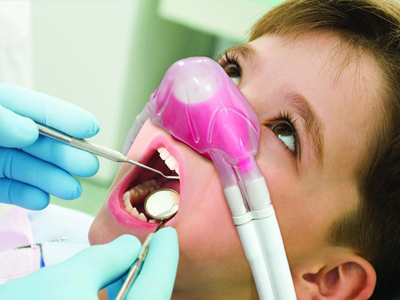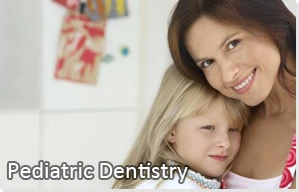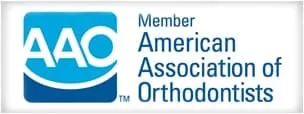Methods to relax children for dental treatment - Use of sedation and Nitrous Oxide (Laughing Gas) in pediatric dentistry

Methods to relax children for dental treatment
Dental fear and anxiety is a common problem among children and they are usually scared of the dentist office. At a young age, keeping oral health in good condition is very important. So, sedation helps parents and guardians to not to put off to dental visit of their children as it is the alternative for anxious children to get the best dental care possible.
Methods of Sedation Dentistry:
- Inhaled minimal sedation or nitrous oxide: This is commonly called as giggle gas or laughing gas. As the name itself states laughing, this medication helps to forget the dental procedure altogether. Your child is given a space mask caring air and nitrous oxide. Using nitrous oxide your child usually will not go to sleep, but gets more relaxed. It wears off relatively quickly. After some time; your child will back to normal selves as the patient breathes pure oxygen after treatment which clears out any remaining nitrous oxide.
- Oral sedation: Oral sedation ranges from mild to moderate. It is taken by mouth or through the nose. Dentist and oral surgeon use these medications while they do the dental work. Your child would stay calm and do what the dentist or surgeon asks him or her to do. Children breathe on their own and wake up easily and even don't remember the things about the dental visit.
- IV sedation: IV sedation is given via an intravenous drip. The medication goes right into the blood via the catheter. As it’s getting by a needle so the kids don't like it. IV sedation is generally used for more serious procedures or dentist or surgeon wants the patient to be unconscious throughout. Home preparation is required for this type of sedation. Instruction will be given at the dental office before coming for treatment.
- Deep sedation: In this procedure, your child will completely asleep and pain-free. Specialist in anesthesia professionals will administer the medication and monitor your child while performing dental procedure or surgery. Recovery time is longer for deep sedation than other sedation types. Your child may need assistance with breathing during the procedure, so the trained professionals at the dental office are present to take care of the patient all over the treatment.
After Sedation
When the child wakes up he/ she might be confused or fussy or may feel like nauseous. So it is important for parents to be with them at that time to calm them down. Once the treatment is completed, instructions will be provided at the dental office, how to take care of your child at home.











 Post-Op Instructions
Post-Op Instructions
 Prevention
Prevention
 Restoration
Restoration
 Orthodontics
Orthodontics
 Our Services
Our Services




